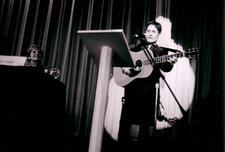Education: Teachers
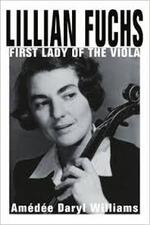
Lillian Fuchs
Born to a musical family, Lillian Fuchs was a talented pianist, violinist, violist, and composer who toured the United States and Europe. Fuchs was the inspiration for some of the greatest composers of the twentieth century and was a popular teacher at the Manhattan School of Music, Juilliard, and Mannes College of Music.
Norma Fields Furst
Higher education was not merely a family priority for Norma Fields Furst; it also became her professional focus. Furst used her positions of authority at different colleges and universities to garner support for civil rights and gender equality within academia.
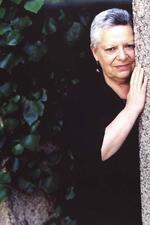
Luisa Futoransky
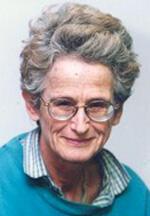
Ruth Gavison
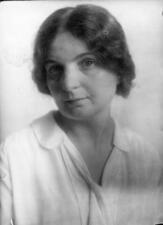
Hilda Geiringer
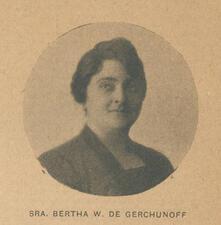
Berta Gerchunoff
Berta Wainstein de Gerchunoff was an Argentine socialist, feminist, and later Zionist leader. As President of the Argentine branch of WIZO, she led an exponential growth of women’s Zionist commitments all over Latin America.
Edith Gerson-Kiwi
Edith Gerson-Kiwi was a world-renowned musicologist and a pioneer in the research of the music of the Jewish communities in Israel. In 1970 she received the Engel Prize of the Tel Aviv Municipality for her scholarly work in Jewish music.
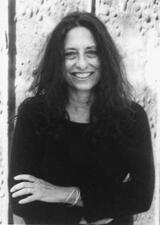
Carol Gilligan
The pioneering work of American psychologist Carol Gilligan changed the way the field of psychology studied women and, arguably, the way society views women. Challenging mainstream psychology through her interrogation of the accepted benchmarks of moral and personal development, she proposed that women and men have different moral criteria and follow different paths in maturation.
Blanche Gilman
A native New Yorker, Blanche Pearl Gilman contributed her energy and resources to a variety of religious, health, social, and activist organizations. Gilman devoted her career to bringing diverse groups together, from her interfaith work to her leadership in the Pro-Falasha (Ethiopian Jewry) Committee.
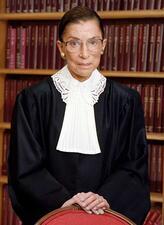
Ruth Bader Ginsburg
Ruth Bader Ginsburg is a unique figure in the history of American law, and indeed, of the twentieth-century women’s rights movement. The founder of the American Civil Liberties Union Women’s Rights Project in 1972, she was confirmed for the United States District Court for the District of Columbia in 1980 and became the first Jewish woman on the Supreme Court in 1993.
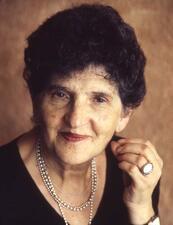
Margo Glantz
Margo Glantz is a Mexican-Jewish writer, journalist, literary critic, and academic. Born in Mexico City in 1930, Glantz demonstrates tremendous versatility as a writer and thinker who strongly identifies with Mexican, Jewish, Catholic, and indigenous practices and beliefs.
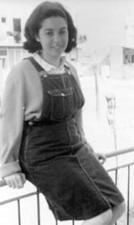
Miriam Cohen Glickman
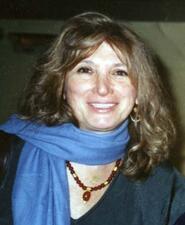
Nora Glickman
Argentine-born Nora Glickman is a prolific dramatist and short story and non-fiction writer, translator, editor, and professor of Latin American literature.
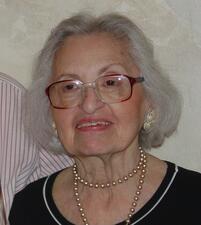
Doris Bauman Gold
Doris Bauman Gold was motivated by her long participation in Jewish organizational life to found Biblio Press, dedicated to educating Jewish women about their own history and accomplishments. Through Biblio Press, Gold published more than 27 general audience books that address and illuminate the culture, history, experiences, and spiritual yearnings of Jewish women.
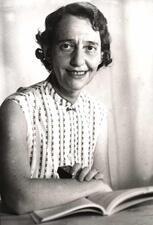
Lea Goldberg
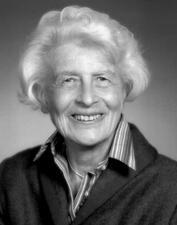
Gertrude Scharff Goldhaber
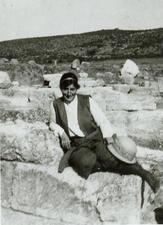
Hetty Goldman
Hetty Goldman was one of the most distinguished American archaeologists in the early twentieth century, the first woman appointed to direct an archaeological excavation by the Archaeological Institute of America and the first woman professor at Princeton’s Institute for Advanced Study.
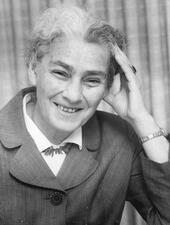
Elisabeth Goldschmidt
Elisabeth Goldschmidt was the founder of genetic studies as a research and teaching discipline at the Hebrew University of Jerusalem. She saw in the mass immigration of Jewish communities to Israel a unique opportunity for genetic research that might also contribute to the welfare of society, and in consequence founded the systematic research in human genetics and genetic counseling services in Israel.
Gertrude/Gego Goldschmidt
Gego, born Gertrude Goldschmidt, was one of Venezuela’s most creative and ingenious artists. Her sculptures have not only a sense of closure but also a boundlessness erasing any distance between viewer and artist and insisting on generating new perspectives.
Henriette Goldschmidt
At a time when women were banned from universities, Henriette Benas Goldschmidt championed women’s education as a crucial building block of a healthy society. She co-founded the General Association of German Women in 1865 and served on the association’s board until 1906, advocating women’s education for the betterment of society. In 1911 she created her crowning achievement, the Leipzig College for Women, Germany’s first women’s college.
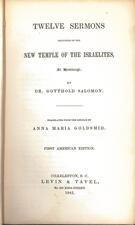
Anna Maria Goldsmid
Anna Maria Goldsmid was a Victorian Jewish advocate of women’s education and Jewish emancipation who made a name for herself as a translator, lecturer, philanthropist, and poet.
Luba Robin Goldsmith
In 1902, Luba Robin was the first woman to graduate from the school of medicine at the Western University of Pittsburgh (later the University of Pittsburgh). Her career combined private medical practice, teaching, writing, lecturing, and active participation in educational, social, and public health work.
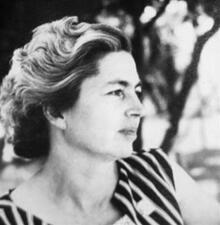
Shulamit Goldstein
A member of the underground militant group Irgun Zeva'i Le'ummi, Shulamit Goldstein became Israel’s first female pilot in the 1930s. Later in life, she also became a nursery school teacher, a poultry farmer, and a fiberglass manufacturer.
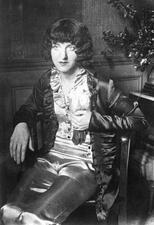
Claire Goll
Claire Goll’s poetry and prose were fueled by the tragedies and scandals that shaped her life. She and her husband, writer Yvan Goll, were central cultural figures of the French avant-garde, and her prolific body of work includes journalism, multiple novels, short fiction, and numerous translations of other authors’ works.

